The cumulative update for Windows 11 versions 22H2 and 23H2, KB5058405, was released on May 13, 2025. This post from MiniTool introduces the new improvements of Windows 11 KB5058405, how to download it, and how to fix it if it does not install.
Windows 11 KB5058405
Windows 11 KB5058405 is the May 2025 cumulative update for Windows 11 versions 22H2 and 23H2. This update mainly contains security fixes and system stability improvements, and addresses some issues reported by users, such as:
- Fixed an issue where microphone audio could be unexpectedly muted.
- Resolved a bug where the eye control app would not launch.
- Improved Secure Boot Advanced Targeting (SBAT) to identify Linux systems better.
- Fixed an issue with Windows Server Update Services (WSUS) deployment on Windows 11 24H2 builds.
It is advised to download and install KB5058405. Here I can show you how to get it using the Settings app. Do as follows.
- Right-click on the Windows button and choose Settings to open it.
- Switch to the Windows Update tab and click Check for updates.
- When the KB5058405 shows, click Download & install to get it.
During this update process, you may encounter that KB5058405 fails to install. Don’t worry. The following methods can help you solve this problem.
What if KB5058405 Failed to Install
Method 1: Download It From Microsoft Update Catalog
If the problem of update KB5058405 not installing occurs when you download and install it using Settings, you can try getting it from the Microsoft Update Catalog page. Here are the steps.
Step 1: Visit the Microsoft Update Catalog page and search for KB5058405.
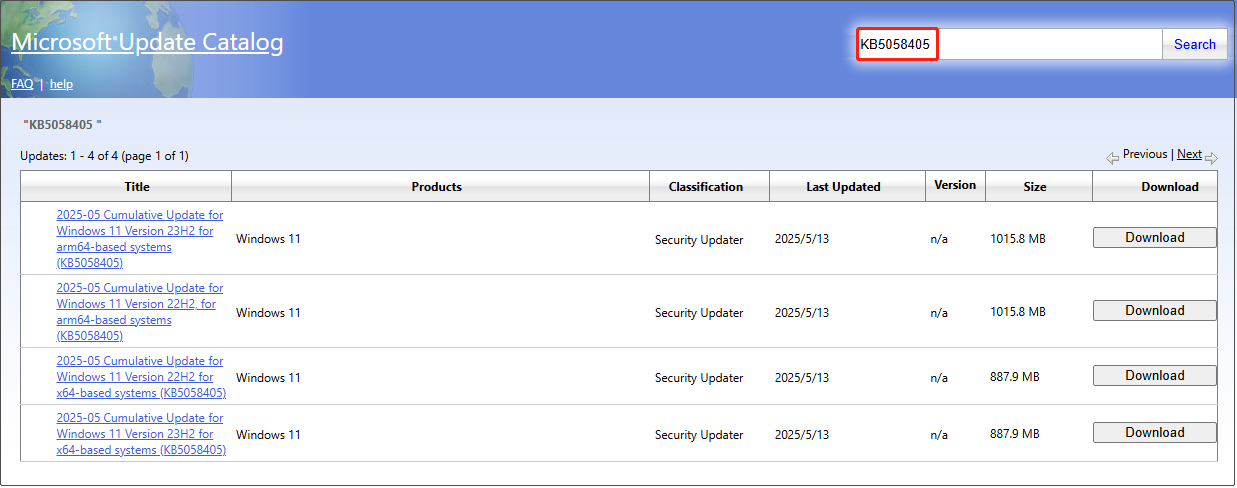
Step 2: Choose an appropriate version and click Download.
Step 3: In the new window, click the given link to start downloading.
Step 4: When the process ends, double-click the file to install it.
Method 2: Run the Windows Update Troubleshooter
The Windows Update troubleshooter can detect and fix the problems that occur during the update process. So, running it to have a try.
Step 1: Press the Win + I keys to open the Settings app.
Step 2: Switch to the Troubleshoot section and find Windows Update.
Step 3: Click it and hit the Run button to start the process.
Method 3: Start App Readiness Service
If the App Readiness service is disabled, the update may fail. So, you need to make sure this service is enabled. Here, I will show you how to check it or enable it.
Step 1: Type Services in the search box and press Enter.
Step 2: Scroll the list to find the App Readiness service.
Step 3: Right-click it and choose Properties.
Step 4: Change the Startup type to Automatic.
Step 5: Finally, click Apply > Start > OK to make the change take effect.
Method 4: Restart Windows Update Service
When Windows Update gets stuck or an error occurs, restarting the Windows Update service can help restart the update process. Here is how you can do it.
Step 1: Open the Services utility and find Windows Update.
Step 2: Double-click it to enter its Properties.
Step 3: Click the Startup type box and choose Automatic from the drop-down box.
Step 4: Click Apply, hit the Start button, and then click OK to confirm the change.
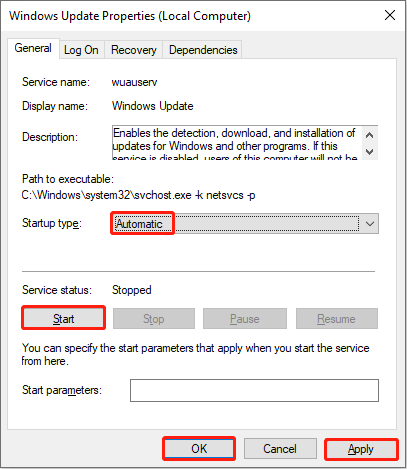
Method 5: Reset Windows Update Components
Resetting Windows Update components is often the solution when you encounter problems with Windows Update, such as failed updates, stuck updates, or error codes. Doing so can help repair corrupted or misconfigured system files and settings that may be preventing updates from working properly.
Step 1: Type cmd in the Windows search box, right-click Command Prompt, and select Run as administrator.
Step 2: When the UAC window pops up, click Yes to continue.
Step 3: Type the following commands in the window and press Enter:
net stop bits
net stop wuauserv
net stop msiserver
net stop cryptsvc
net stop appidsvc
Ren %Systemroot%\SoftwareDistribution SoftwareDistribution.old
Ren %Systemroot%\System32\catroot2 catroot2.old
regsvr32.exe /s atl.dll
regsvr32.exe /s urlmon.dll
regsvr32.exe /s mshtml.dll
netsh winsock reset
netsh winsock reset proxy
rundll32.exe pnpclean.dll,RunDLL_PnpClean /DRIVERS /MAXCLEAN
dism /Online /Cleanup-image /ScanHealth
dism /Online /Cleanup-image /CheckHealth
dism /Online /Cleanup-image /RestoreHealth
dism /Online /Cleanup-image /StartComponentCleanup
Sfc /ScanNow
net start bits
net start wuauserv
net start msiserver
net start cryptsvc
net start appidsvc
Wait patiently for this process to be completed. After that, download KB5058405 again to check if it can be installed successfully.
MiniTool Power Data Recovery FreeClick to Download100%Clean & Safe
Final Thoughts
All the information about Windows 11 KB5058405 is here, including its new features, download methods, and fixes for not installing it. Hope they can work for you.
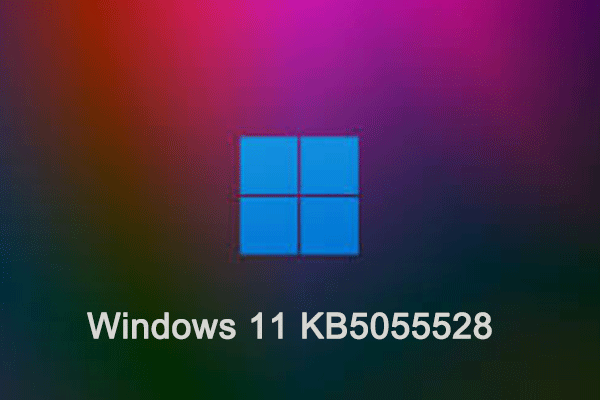

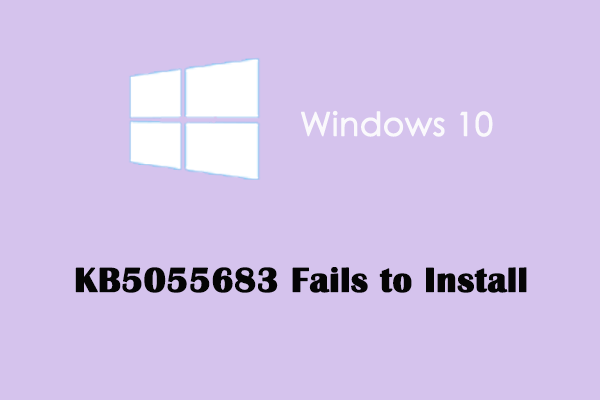
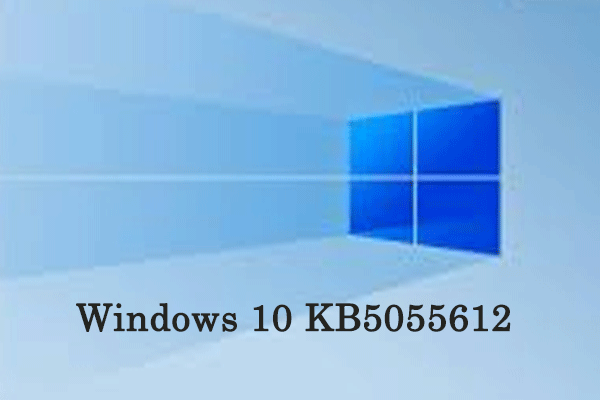
User Comments :